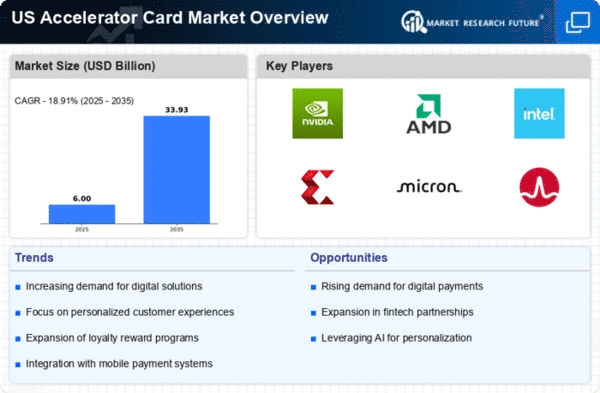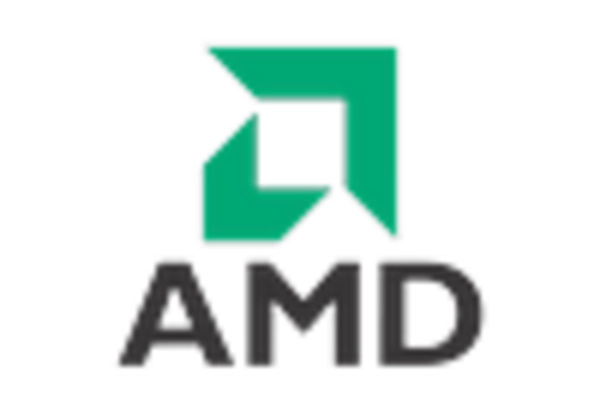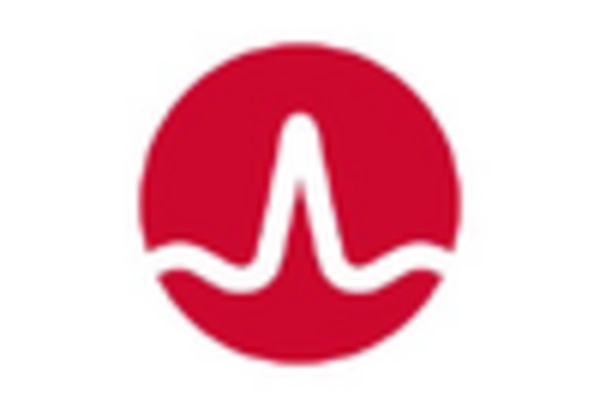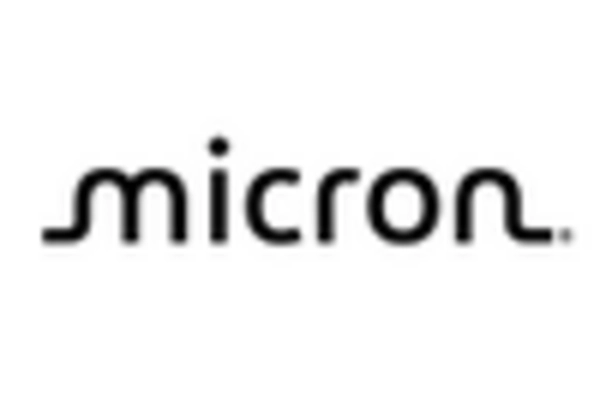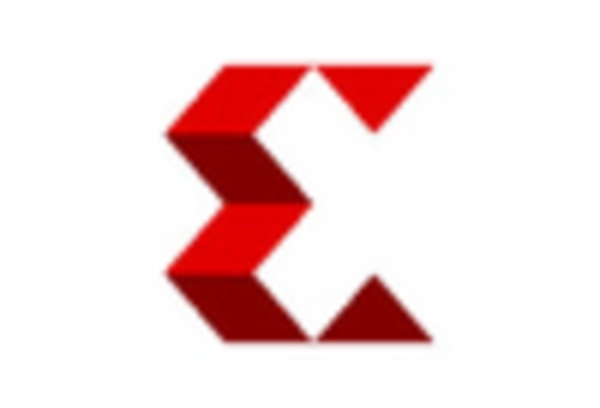Growing Focus on Energy Efficiency
The accelerator card market is also driven by a growing emphasis on energy efficiency within computing environments. As organizations strive to reduce operational costs and minimize their carbon footprint, the demand for energy-efficient hardware solutions rises. Accelerator cards are designed to deliver high performance while consuming less power compared to traditional processing units. This focus on sustainability is reflected in the increasing adoption of accelerator cards that optimize energy usage without compromising performance. The market for energy-efficient computing solutions is projected to grow significantly, indicating that the accelerator card market will likely benefit from this trend as companies prioritize eco-friendly technologies in their infrastructure.
Increased Investment in Data Centers
The accelerator card market is significantly influenced by the rising investment in data centers across the United States. As businesses continue to migrate to cloud-based solutions, the demand for efficient and powerful data center infrastructure grows. Reports indicate that the data center market is expected to reach $200 billion by 2025, which presents a substantial opportunity for the accelerator card market. Data centers require high-performance computing solutions to manage workloads effectively, and accelerator cards play a pivotal role in enhancing processing capabilities. This trend suggests that as data centers evolve to meet the demands of modern applications, the accelerator card market will likely see increased adoption and innovation to support these developments.
Emergence of Edge Computing Solutions
The emergence of edge computing solutions is reshaping the landscape of the accelerator card market. As more devices become interconnected and the Internet of Things (IoT) expands, the need for processing data closer to the source becomes paramount. Accelerator cards are essential in edge computing environments, where low latency and high performance are critical. The edge computing market is anticipated to grow at a CAGR of over 30% through 2026, which suggests a robust demand for accelerator cards that can support these applications. This trend indicates that the accelerator card market is likely to evolve in response to the increasing need for efficient data processing at the edge, driving innovation and development in this sector.
Rising Demand for High-Performance Computing
The accelerator card market experiences a notable surge in demand driven by the increasing need for high-performance computing (HPC) solutions across various sectors. Industries such as finance, healthcare, and scientific research are increasingly relying on advanced computing capabilities to process vast amounts of data efficiently. According to recent estimates, the market for HPC is projected to grow at a CAGR of approximately 8% through 2026, which directly influences the accelerator card market. As organizations seek to enhance their computational power, the adoption of accelerator cards, which provide significant performance improvements, becomes essential. This trend indicates a robust growth trajectory for the accelerator card market, as businesses invest in technology that can handle complex calculations and data analytics more effectively.
Expansion of Artificial Intelligence Applications
The proliferation of artificial intelligence (AI) applications is a critical driver for the accelerator card market. As AI technologies become more integrated into business operations, the demand for specialized hardware that can support machine learning and deep learning algorithms intensifies. Accelerator cards, particularly those designed for AI workloads, are increasingly sought after due to their ability to process large datasets rapidly. The AI market is expected to reach a valuation of over $500 billion by 2024, which suggests a corresponding increase in the need for accelerator cards tailored for AI applications. This growth in AI adoption not only enhances the capabilities of existing systems but also propels the accelerator card market forward, as companies invest in infrastructure that can support advanced AI functionalities.

